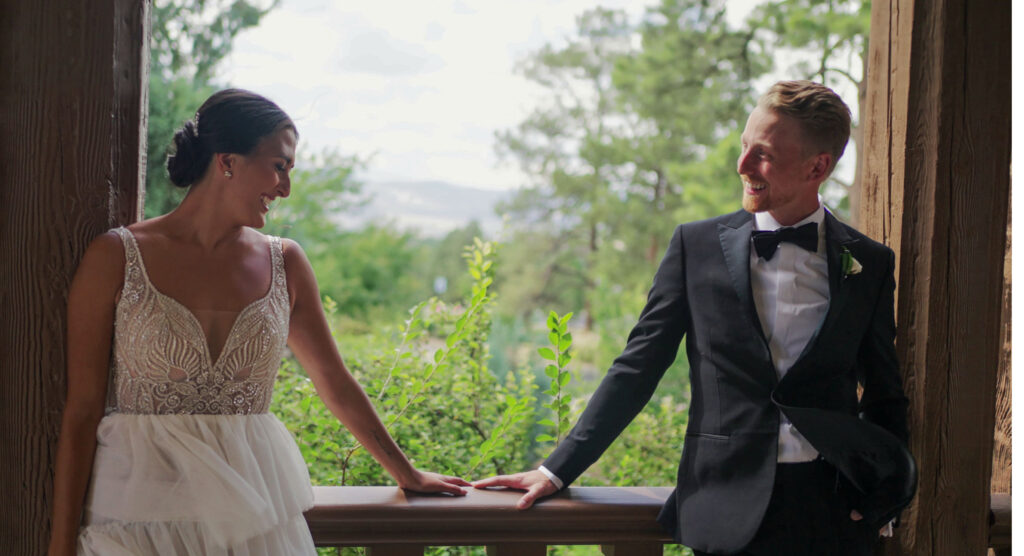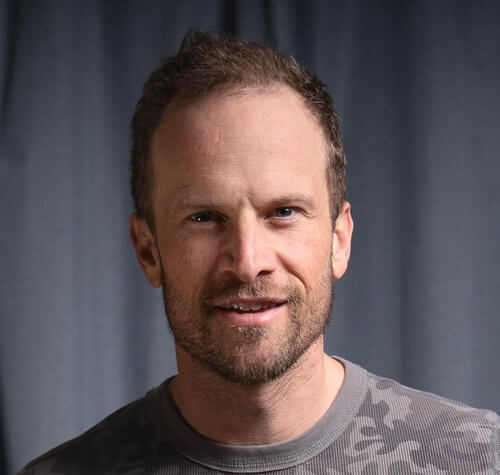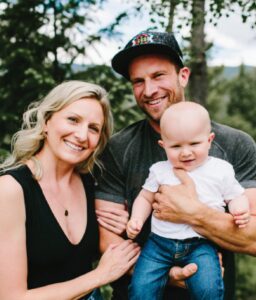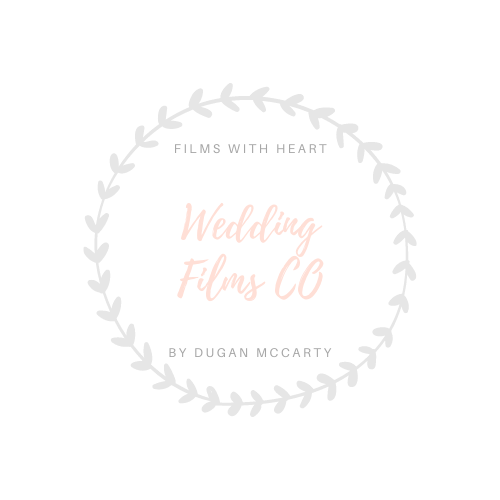The Ultimate Timeline for Wedding Videography:
When to Book and What to Expect

So, you’ve said “yes” to forever and now you’re diving into the whirlwind of wedding planning! First off—congratulations! While you’re probably juggling venue tours, cake tastings, and dress fittings, there’s one vendor you definitely don’t want to leave to the last minute: your wedding videographer.
Why the rush? Well, the best wedding videographers (hi there! 👋) tend to book up faster than you might think. In fact, according to recent wedding industry surveys, top videographers are typically booked 12-14 months in advance for prime wedding dates. That gorgeous fall Saturday you’ve got your eye on? It’s probably on everyone else’s radar too!
But booking your wedding videographer isn’t just about securing a date. It’s about finding someone who gets your vision, vibes with your personality, and can translate your love story into a film you’ll treasure for decades. Think about it—while your photos will capture beautiful moments, your wedding film will preserve the laughs, tears, vows, and dance moves that photos simply can’t. It’s the difference between a snapshot and a time machine.
And here’s something most couples don’t realize until after their wedding day: the day itself absolutely flies by in a blur of emotion and activity. Many newlyweds tell us their wedding video was the first time they actually got to see many moments from their own celebration! That’s why having an experienced videographer (and knowing exactly when to book them) is so important to your wedding journey.
In this guide, I’m breaking down the complete timeline for wedding videography—from when to start your search to what happens after the confetti settles. Let’s make sure you don’t just capture your wedding day, but that you absolutely nail the entire filming process from start to finish!
The early bird catches the worm—or in this case, the perfect wedding videographer! A year or more before your big day is the ideal time to start your videography research, especially if you’re planning a wedding during peak season (hello, summer and fall weekends!).
How to Start Researching Wedding Videographers
Your search for the perfect wedding filmmaker should be both fun and strategic. Start by browsing local videographers in the Colorado area—Instagram and Pinterest are goldmines for wedding inspiration. Follow hashtags like #ColoradoWeddingVideographer or #DenverWeddingFilms to discover talent in your area.
Don’t overlook the power of recommendations! Chat with recently married friends, your wedding planner, or even your photographer (we often work in teams with photographers we love). Venues are another fantastic resource—many have preferred vendor lists featuring videographers who already know the best angles and lighting spots at your location.
Create a shortlist of 5-7 videographers whose work makes your heart skip a beat. Bookmark their websites, follow their social media, and start imagining your own love story through their lens.
Questions to Ask When Evaluating Portfolios
When you’re browsing through highlight reels and wedding films, look beyond the pretty images and ask yourself these questions:
- Does their storytelling style make you feel emotional? (If you’re tearing up watching strangers’ weddings, that’s a great sign!)
- Can you see consistency across their work, or does quality vary dramatically between films?
- Do they capture natural moments, or does everything feel overly posed?
- How do they handle different lighting situations? Look for examples of indoor, outdoor, daytime, and evening footage.
- Can you hear vows and speeches clearly? Audio quality is just as important as beautiful visuals!
- Do the final films reflect diverse couples and wedding styles?
- Does their work showcase creative angles and thoughtful composition?
Don’t hesitate to request full wedding films rather than just highlight reels. Highlights are designed to showcase the best 3-5 minutes, but seeing a complete film will give you a better idea of what your final product might look like.
Understanding Different Videography Styles
Wedding videography isn’t one-size-fits-all. Different filmmakers bring unique approaches to capturing your day, and understanding these styles will help you find the perfect match:
Documentary/Journalistic: This fly-on-the-wall approach focuses on capturing authentic moments as they unfold naturally, with minimal direction. The emphasis is on genuine emotions and spontaneous interactions rather than posed shots. If you’re camera-shy or value authenticity above all, this might be your style.
Cinematic: Think movie-quality production with artistic composition, creative transitions, and film-like color grading. Cinematic videographers often use equipment like sliders, gimbals, and drones to create sweeping, dramatic footage. These films feel like romantic movies starring you! This is our specialty at Wedding Films Co.
Traditional: A straightforward, comprehensive approach that follows the chronological events of the day. Traditional films tend to be longer and include complete coverage of the ceremony and formal events.
Artistic/Avant-garde: For the unconventional couple, this style incorporates creative techniques like unique angles, experimental editing, and artistic effects. It’s perfect if you want something truly different.
Storytelling: This approach weaves narrative elements throughout your film, often incorporating voiceovers from vows or toasts to create a cohesive story. These films prioritize emotional impact and personal history.
When you find a style that resonates with you, look for consistency across the videographer’s work. The last thing you want is to fall in love with one cinematic masterpiece in their portfolio only to discover it was a one-off and their usual style is completely different.
Remember, your wedding film will be something you cherish for decades—long after the cake is eaten and the flowers have wilted. Taking time during this research phase to find the perfect storyteller for your day is an investment in memories that will only become more valuable with time!
9-12 Months Before: Booking Your Videographer
Why Booking Early Matters (Especially for Peak Season Dates)
Now that you’ve done your homework and narrowed down your favorites, it’s time to secure your date! Booking 9-12 months in advance isn’t just a suggestion—it’s practically a necessity, especially in Colorado where our gorgeous mountain backdrops make wedding dates highly competitive.
Peak season weekends (June through October) in Colorado can book up to 18 months in advance for the most sought-after videographers. If you’re planning a wedding during these months, earlier is definitely better. Even for “off-season” dates, the best videographers typically maintain full calendars about a year out.
But booking early isn’t just about availability—it’s about peace of mind. Locking in your videographer means one major vendor checked off your list, and often at current pricing before annual increases. Plus, building a relationship with your videographer over time allows for more personalized planning and creative collaboration.
What Deposit and Contract Terms to Expect
When you’re ready to book, here’s what typically happens next:
Most wedding videographers (including us at Wedding Films Co) require a non-refundable booking fee or deposit to reserve your date. This usually ranges from 20-50% of the total package price. The remaining balance is typically due about 1-2 weeks before your wedding day.
Before sending any money, you’ll receive a contract that outlines everything from cancellation policies to delivery timelines. Read this document carefully! Look for details about:
- Rescheduling policies (especially important in unpredictable times)
- Coverage hours and overtime rates
- Rights to the footage and sharing permissions
- Delivery timeframes for your final films
- Revision policies and limitations
- Contingency plans if your videographer falls ill
Don’t hesitate to ask questions about anything that seems unclear. A professional videographer will be happy to walk you through their contract and explain any terms you’re unsure about.
How to Align Videography with Your Overall Wedding Budget
Wedding videography is an investment in memories that last a lifetime, but it’s important to find the right fit for your budget. Quality wedding videography in Colorado typically starts around $3,500 for basic coverage and can exceed $10,000 for premium, multi-day packages with additional cinematographers and specialty equipment.
To make the most of your budget:
- Be upfront about your price range when inquiring
- Consider package customization—maybe you need less coverage time but want to add drone footage
- Ask about payment plans—many videographers (including us!) offer monthly installments
- Prioritize what matters most to you (length of final film, number of cinematographers, special equipment like drones)
- Remember that expertise and experience come at a premium, but also deliver premium results
If you’ve fallen in love with a videographer whose standard packages are beyond your budget, have an honest conversation. Many are willing to create custom packages that honor your budget while still providing beautiful coverage of your most important moments.
6 Months Before: Planning Your Shot List
Essential Moments to Capture
With your videographer secured, it’s time to start thinking about the specific moments you want captured. About six months before your wedding, start creating a “must-have” shot list.
While experienced videographers will naturally capture key moments, communicating your priorities ensures nothing gets missed. Essential moments typically include:
- Getting ready scenes (both partners)
- First look (if you’re having one)
- Walking down the aisle
- Vow exchange
- Ring exchange
- First kiss as a married couple
- Recessional
- Family formal sessions
- Wedding party portraits
- Couple’s portrait session
- Reception entrance
- First dance
- Parent dances
- Toasts and speeches
- Cake cutting
- Bouquet/garter toss
- Dance floor highlights
- Grand exit
Beyond these traditional moments, think about personal touches unique to your celebration—a special cultural ritual, a surprise performance, or meaningful family traditions.
Coordinating with Your Photographer
Your videographer and photographer will be capturing the same day from different perspectives, so their coordination is crucial. About six months out, connect these key vendors if they don’t already know each other.
Many videographers and photographers who work well together can create a seamless experience where they enhance rather than interfere with each other’s work. Discuss how they’ll handle:
- Portrait sessions (who directs and who captures candid moments)
- Ceremony positioning (ensuring they don’t block each other or your guests’ view)
- Reception coverage (dividing key moments)
- Lighting preferences (video often requires different lighting than photography)
The best scenario is when your photo and video teams have worked together before and already have an established rapport. If not, consider scheduling a joint call so they can discuss their approaches before the wedding day.
Special Requests and Custom Additions
Now’s also the time to discuss any special footage you might want:
- Drone aerial shots of your venue (weather and regulations permitting)
- “Getting ready” letters or gift exchanges
- Extended family interviews or messages
- Special messages to each other recorded privately
- Rehearsal dinner coverage
- Pre-wedding events like welcome parties
- Morning-after brunch footage
- Love story interviews to be incorporated into your film
Some of these additions may affect your package pricing, so it’s best to discuss them well in advance to adjust your contract if needed.
3 Months Before: The Pre-Wedding Consultation
What to Discuss with Your Videographer
About three months before your wedding, schedule a detailed planning consultation with your videographer. This might happen virtually or in person, but it’s an essential step in ensuring your vision comes to life.
Come prepared to discuss:
- Your finalized wedding day timeline
- Specific locations for each part of the day
- Key family members or friends to highlight
- Any sensitive family situations they should be aware of
- Music preferences for your final film
- Style preferences you’ve seen in their other work that you particularly love
- Any concerns or special considerations
This consultation is your opportunity to make sure your videographer understands not just the logistics but also the feeling you want your wedding film to evoke.
Sharing Your Wedding Vision and Must-Have Shots
Beyond the standard moments, share what makes your love story unique. Perhaps it’s how you met, shared interests, or the journey that brought you to this day. The more your videographer understands about your relationship, the better they can tell your story.
This is also the time to share any specific shots you’ve been dreaming about:
- That perfect sunset spot at your venue
- A meaningful location from your relationship
- Special details you’ve put thought into (heirloom jewelry, custom vows, personalized decor)
- Candid moments with specific loved ones
Many couples create Pinterest boards or share clips from other wedding films that have elements they love. Visual examples are incredibly helpful for your videographer to understand your aesthetic preferences.
Technical Considerations for Your Venue
Each venue presents unique filming opportunities and challenges. Discuss with your videographer:
- Lighting conditions throughout your day (especially important for indoor venues)
- Audio setup for your ceremony (where will mics be placed?)
- Space restrictions or venue policies regarding filming
- Backup plans for weather issues at outdoor locations
- Power source availability for equipment
- Timing considerations for optimal natural light
If possible, your videographer might want to visit your venue ahead of time, especially if they haven’t worked there before. This location scouting helps them plan camera positions and identify the best filming angles in advance.
1 Month Before: Finalizing Details
Timeline Coordination with Other Vendors
With just a month to go, ensure your videographer has the most updated timeline for your day. Share contact information for your:
- Wedding planner or day-of coordinator
- Photographer
- DJ or band leader
- Venue coordinator
- Officiant
These vendors will work closely together, and having everyone on the same page is crucial for a smooth experience. Your videographer may reach out directly to coordinate specific details, particularly with the audio team for ceremony sound.
Special Accommodations or Equipment Needs
Now’s the time to confirm any special equipment needs:
- Will your videographer bring lighting for darker venues?
- Is drone footage confirmed (and are necessary permits secured)?
- Are additional shooters needed for simultaneous coverage?
- Will they need specific power requirements or space for equipment setup?
Also discuss any accommodation considerations like meals for your video team (they’ll be working 8-12 hours!) and a designated space to store equipment safely during your reception.
Weather Contingency Plans for Outdoor Venues
Colorado weather can be unpredictable! If you’re planning an outdoor ceremony or reception, discuss backup plans with your videographer:
- Alternative indoor locations for key shots
- Equipment protection in case of light rain
- Timing adjustments to capture optimal lighting despite weather changes
- Creative approaches to make the most of challenging conditions
Professional videographers can work magic in almost any weather, but having contingency discussions ahead of time ensures they’re prepared for anything.
Wedding Day: What to Expect
Typical Filming Schedule and Videographer Arrival Time
On your wedding day, expect your videographer to arrive early—typically while you’re getting ready. For standard full-day coverage, here’s a typical timeline:
- Getting Ready: Videographer arrives 2-3 hours before the ceremony to capture preparation, details, and pre-ceremony moments
- First Look/Pre-Ceremony: Filming of first look (if applicable) and pre-ceremony portraits
- Ceremony: Complete coverage with multiple camera angles
- Post-Ceremony: Family portraits, wedding party, and couple’s session
- Cocktail Hour/Reception Setup: Venue and detail shots while guests mingle
- Reception: Grand entrance through special dances, speeches, dinner, cake cutting, and dancing
- Grand Exit: Coverage of your final moments as the celebration concludes
Most packages include 8-10 hours of coverage, with the option to add hours if needed for early preparation or late-night celebrations.
How to Prepare Your Wedding Party
Give your wedding party a heads-up about the video coverage so they’re camera-ready and know what to expect:
- Let them know a videographer will be present during getting ready
- Remind them to be mindful of camera positions during the ceremony
- Encourage natural interactions rather than constantly looking at the camera
- Prepare them for any special shots or moments you’ve planned
A little preparation helps everyone feel comfortable on camera, resulting in more natural and beautiful footage.
Tips for Natural On-Camera Presence
Even if you’re camera-shy, these simple tips will help you look natural in your wedding film:
- Forget the camera is there most of the time—focus on each other and your guests
- Move slightly slower during key moments (like your first kiss) to capture them clearly
- Speak your vows at a natural pace rather than rushing
- Take moments throughout the day to breathe and be present
- Trust your videographer to guide you when needed for specific shots
- Remember that genuine emotion always looks beautiful on camera
The best moments in wedding films happen when couples are fully present in their day rather than performing for the camera.
After Your Wedding: The Editing Process
Realistic Timeline for Receiving Your Wedding Film
After the confetti settles and you return from your honeymoon, the anticipation begins for your wedding film. Here’s what to expect:
At Wedding Films Co, our standard delivery timeline is 8-10 weeks for final films, though this may vary by season (peak summer weddings might take longer due to volume). Some videographers might take 3-4 months, while others offer expedited options for an additional fee.
The editing process is intensive and includes:
- Reviewing all footage (often 300+ GB of raw material)
- Selecting the best moments
- Color correction and grading
- Audio mixing and music synchronization
- Creating the narrative structure
- Adding motion graphics and titles
- Multiple rounds of refinement
Many videographers provide a “sneak peek” or teaser within the first week after your wedding—a 1-2 minute highlight that gives you a glimpse of what’s to come while the full edit is being completed.
Review and Feedback Process
When your draft film is ready, you’ll typically receive a private online link to review. This is your opportunity to provide feedback:
- Most videographers include 1-2 rounds of minor revisions in their packages
- Be specific about any changes you’d like to see
- Understand that major structural changes might incur additional editing fees
- Focus on moments you’d like to see more/less of rather than technical editing choices
Remember that your videographer is an artist who has developed their style over years—trust their creative vision while ensuring your most important moments are included.
Options for Sharing Your Wedding Video
Once your final film is complete, you’ll have several options for sharing and preserving it:
- Digital download of high-resolution files
- Online hosting with private sharing links (typically available for 1+ years)
- USB drives or custom presentation boxes
- Social media-optimized versions
- Raw footage archives (usually an additional investment)
Consider creating a viewing event with close family and friends to share your film for the first time—it’s a wonderful way to relive the day together!
Conclusion
From researching videographers a year in advance to treasuring your wedding film for decades to come, the journey of wedding videography is an important part of your overall wedding experience. By following this timeline, you’ll ensure you find the perfect filmmaker, communicate your vision clearly, and create space for the magic to happen on your wedding day.
Remember these key milestones:
- 12+ months: Research and explore styles
- 9-12 months: Book your videographer
- 6 months: Plan your shot list and coordinate with photographers
- 3 months: Detailed planning consultation
- 1 month: Finalize timeline and logistics
- Wedding day: Relax and be present
- 2-3 months after: Receive and celebrate your wedding film
Your wedding video will become more precious with time—capturing not just how your day looked, but how it felt and sounded. The laughter, tears, vows, and dancing create a time capsule of one of life’s most significant celebrations.
Ready to start your wedding film journey? Contact us at Wedding Films Co to check our availability for your date and schedule a consultation. We’d love to be part of telling your love story!





